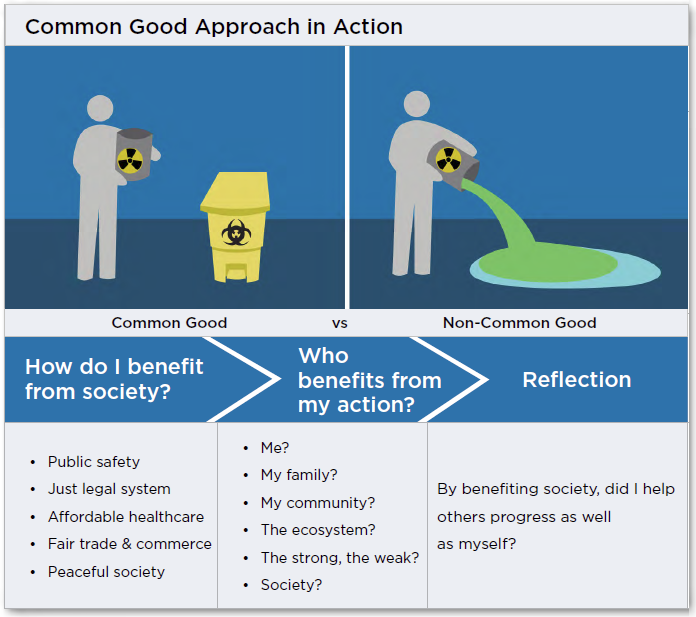Five Ways To Shape Ethical Decisions: Common Good Approach
June 12, 2018

The fourth of the five theories is the Common Good Approach. When debriefing an ethical dilemma, the Common Good Approach can be useful when the issue involves, or should involve, the overall picture or environment.
The Common Good Approach regards all individuals as part of a larger community. As such, we share certain common conditions and institutions upon which our welfare depends. For society to thrive, we need to safeguard the sustainability of our community for the good of all, including our weakest and most vulnerable members. Some things that nurture a healthy, functioning community are: stable family life; good schools; affordable nourishment and health care; effective public safety; a just legal system; fair trade and commerce; a safe, well-managed ecosystem; an accessible technological environment; a well-maintained infrastructure; and a peaceful society.
The utilitarian principle weighs the net balance of goodness and harm produced by a certain action on a group of individuals, while this approach tests whether an action benefits or erodes a specific element of the common good. It weighs the effect on the fabric of the community. It encourages us to recognize how the freedoms and support we enjoy as individuals in pursuit of our own happiness are made possible by the sustained welfare of our community life. It invites us to ask what kind of society we are and want to become, and what actions we need to take to achieve that end.



.png?width=80&name=1-questions%20(1).png)